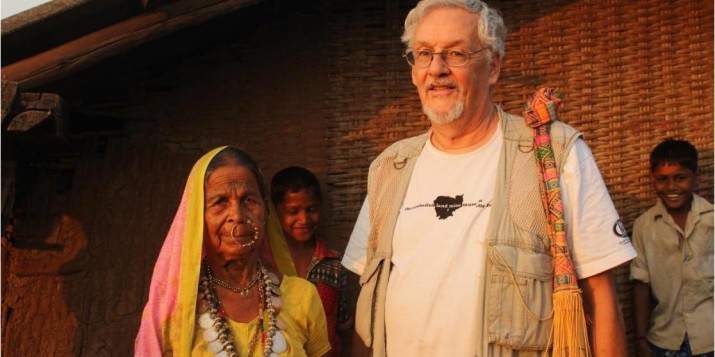Go off the beaten path and go on an unforgettable, unique, 23-day trip of a lifetime with JNR Globetrotters’ TRIBAL TOUR OF GUJARAT. Be a part of living history, as you rub shoulders with the last few surviving adivasi tribes and nomadic communities in the state. Participate in their habitat, lifestyle, culture, rituals and preserved way of life; before it is consigned to the past forever.
Kick off the holiday with the Ahmedabad Calico Museum’s acclaimed collection of textile artifacts, designs and technology; covering three to four centuries. Follow up with Naubat Kahana for the traditional orchestra, which announced the arrival and departure of the king, welcomed dignitaries, marked the beginning of wars and special occasions. The musicians were also time keepers, announcing the sunset in the evening, the closing of the fort gates at night etc.
The tribal adventure begins next morning with a 400 km drive into the interiors to unfold a realm of sights and experiences that have virtually eased to exist in all but a few pockets:
THE DANGS: After the traditional village welcome, get your first-hand experience of rural routine – milking cattle, breaking paddy shells, making flour using ‘chakkis’ (cylindrical stones), chopping wood, laying dung flooring, creating bamboo artwork etc. The weekly village market, a local attraction in all hamlets, still uses the barter system.
Visit Pampa Sarovar (Lake) mentioned in the Ramayana as Pushtharini and Don Village, a hill resort rich in bio-diversity & tribal heritage, 1000 metres high.
Delight to the traditional musical instruments like the mouth organ or Pavri (made from bull’s horn, bottle guard, bamboo and molten bee hive).
Examine traditional tribal hunting tools (not used any more, as villagers now prefer to showcase wildlife is in its natural habitat, to generate income).
Immerse yourself in making the traditional, popular Warli Art; wherein tribal philosophy and way of life is depicted through monochromantic images.
Spend time at a local tribal school where children are left to become self reliant, while parents migrate to peripheral districts to work in sugarcane fields.

Meet local priests who assist in addressing the tribe’s problems. Explore homes of the Bhil tribe and get a rare opportunity to see idols associated with their belief systems.
In Jambughoda, pop into homes of tribals who make bamboo utensils. Learn to prepare a traditional Papad snack; check out a makeshift unit that manufactures hand-made jaggery (coarse brown sugar from sap).
Discover pottery and terracotta work of Kumbhar families who make environment-friendly pots, figures and toys like horses, cows, bulls, buffaloes from recyclable clay.
The founders of Chhota Udepur, one of the three princely states are descendants of Prithviraj Chauhan. Visit the tribal haat (market), tribal museum & Adivasi Academy, a collective attempt to understand the culture, history, society and arts of adivasis and nomadic communities. Survey the Rathwa, Bhil, Bhilala and Nayaka villages; besides the Jain derasar and Kali Temple.
Move on next to Bandhana, Pal and Rani Villages to see the Asari,Gameti,Chauhan,Patela tribes up close.

More living history of tribes:
The Gamit tribe (who believe they belong to the Sun dynasty, their old women singing of their migration hisory); Ahirs (traditional followers of Lord Krishna); Damor (descended from Rajput men and Bhil women); Rabari (supposedly put by Shiva on earth to tend to Parvati’s camels); Garasias (characterised by social divisions with well-defined relationships) …..
Kadoli Village / Poshina: Home to the magnificent white marble Heritage Hotel, the Jain temple from 1240, the intricately carved medieval Shiva temple and the royal ‘chhatris’ (cenotaphs) of the rulers. The rulers of Poshina are descendants of the Chalukyas, who ruled much of Central India and the whole of Gujarat in the 12th century. Native artisans include arrow craftsmen, blacksmiths, silversmiths, potters; the bazaar is famous for its silver tribal jewellery, ornate sheathed daggers, terracotta horses.
And life goes on among these warm and friendly people; colourful pastoral communities herding cattle, milking livestock and churning butter; endowed with rich and diverse tribal culture. All of which is reflected in their architecture, arts and crafts – amid beautiful embroidered clothes and exquisite silver jewellery; bright & colorful chaniya cholis & ethnic stitchwork; handicrafts like pottery, handloom weaving etc – all part of a live throbbing mosaic of history that refuses to die out.

OTHER LOCALES ON THE ITINERARY: Abhapur, Buja, Daiya, Ambasa, Vanaj, Chatrang & Bedi villages; Little Rann of Kutch, Zainabad, Papar, Zuru, Nirona, Banni, Naliya, Mundra.
MORE TRIBES & SEMI-NOMADIC COMMUNITIES: Gowala, Garacia, Vadiara Rabari, Koli and Bhairwad Vadha, Daleta Jath, Rasi, Muthwa, Sodha, Parkariya and Meghvar, Meghwal, Mirs and Bajanias, Halaris, Padhar, Siddhi families of Abysinnian origin – each one a veritable storehouse of cultures & customs …..
All night halts are at comfortable, secure homestays, farms or Heritage Hotels.
Activities are organized, based on preference and availability of time


